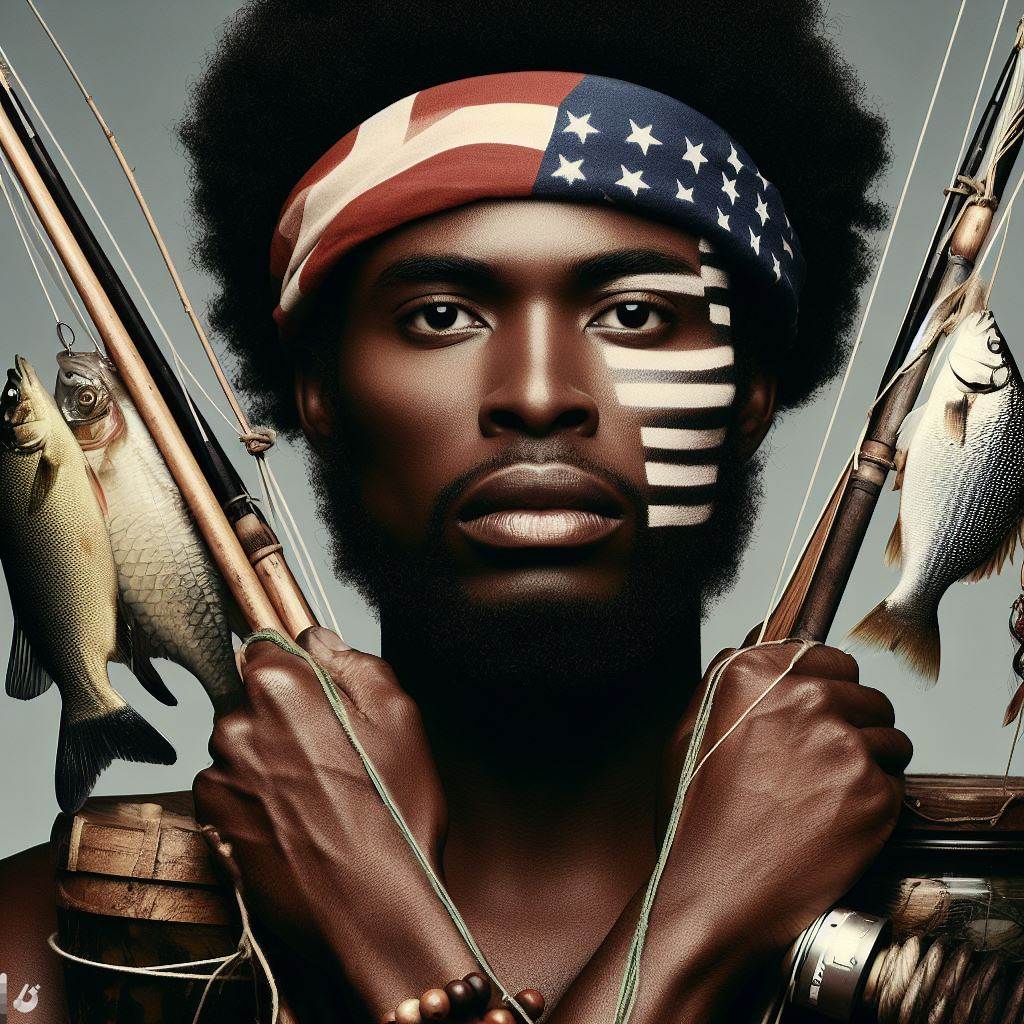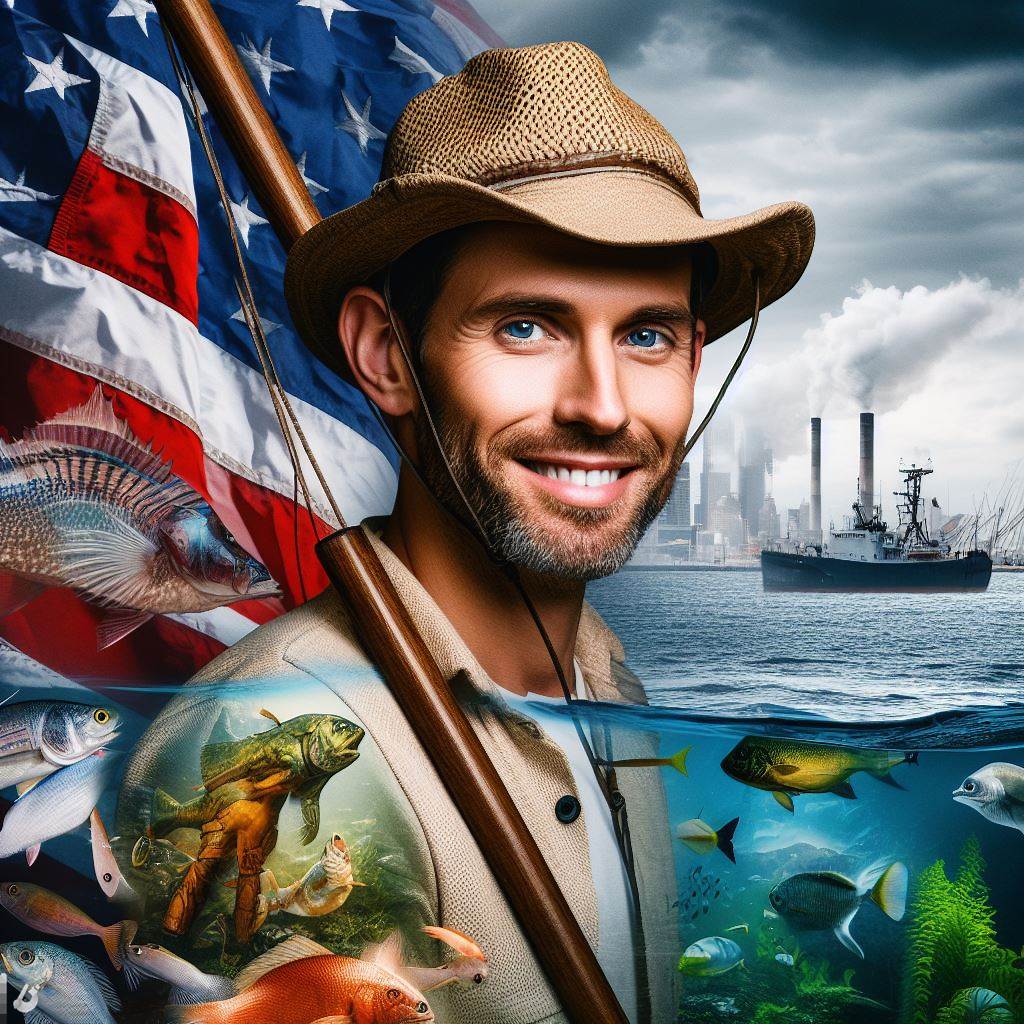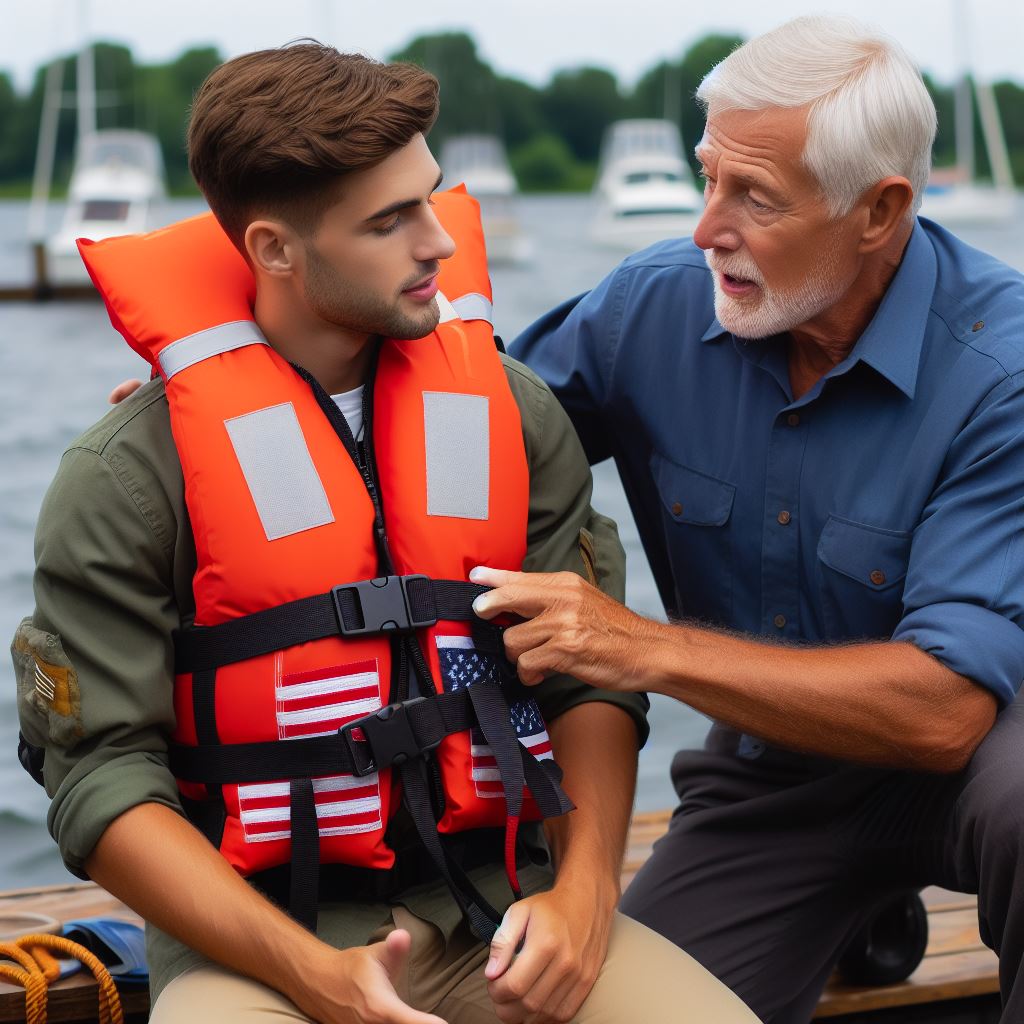Introduction
Women have played a pivotal role in the US fishing industry, yet their contributions have often been overlooked.
It is important to discuss their role to shed light on their contributions and address gender inequities.
The fishing industry in the US has a long history, dating back to the early European settlements.
Initially, fishing was primarily a male-dominated industry, but as time passed, women became increasingly involved.
They participated in various activities such as processing and canning, supporting the industry’s growth.
However, these contributions have often been undervalued and underrepresented in historical accounts.
By examining the role of women in the US fishing industry, we can better understand the diversity and significance of their involvement.
This section explores the historical context and highlights the crucial role women have played, empowering and recognizing their contributions.
It also serves as a reminder of the challenges female fishers face, including limited access to resources, discriminatory practices, and societal biases.
Through this analysis, we aim to foster a more inclusive and equal fishing industry.
By promoting gender equity, we can harness the full potential of the US fishing industry and ensure a sustainable future for all.
Early Involvement of Women in the Fishing Industry
Throughout history, women have played an essential and often overlooked role in the US fishing industry.
From the roles of Native American women in fishing to their contributions during colonial times and participation in the early commercial fishing industry, their influence can be seen and celebrated.
Roles of Native American Women in Fishing
- Native American women were integral to the success of their tribes’ fishing activities.
- They had extensive knowledge of fishing techniques, including net-making and fish preservation methods.
- Women would often gather along rivers and lakes to catch fish using various tools.
- They would also teach their skills to younger generations, ensuring the preservation of their fishing traditions.
Women’s Contributions During Colonial Times
- During colonial times, women had a significant role in sustaining their families through fishing.
- They would assist in catching fish, processing them, and even selling them in local markets.
- Not only did they contribute to the family’s income, but they also provided food for their communities.
- Women’s involvement in fishing helped establish the industry as a critical economic and social activity.
Participation in the Early Commercial Fishing Industry
Despite facing challenges and gender biases, women’s contributions to the US fishing industry have been invaluable.
Their involvement has shaped the industry and has been crucial for the sustainability and growth of fishing communities.
The early involvement of Native American women in fishing laid the foundation for their continued participation.
Their role as teachers and keepers of fishing traditions ensured the passing down of knowledge from generation to generation.
During colonial times, women’s contributions went beyond household needs.
By engaging in fishing activities, they helped establish fishing as a fundamental economic activity, providing both income and sustenance for their families and communities.
In the early commercial fishing industry, women’s labor on boats and as fishmongers was essential for meeting the growing demand for seafood.
Transform Your Career Today
Unlock a personalized career strategy that drives real results. Get tailored advice and a roadmap designed just for you.
Start NowTheir hard work and dedication enabled the industry to thrive and satisfy the needs of an expanding market.
Today, women continue to play pivotal roles in the US fishing industry.
They serve as researchers, policymakers, environmental advocates, and leaders within fishing communities. Their contributions are vital for sustainable practices and ensuring the industry’s future.
Ultimately, recognizing the early involvement of women in the US fishing industry is crucial for understanding its history and appreciating the integral role women have played.
From Native American women to those in colonial times and the early commercial fishing industry, their contributions have shaped the industry and continue to influence it today.
Read: The Most Popular Fishing Regions in the US Explored
Challenges Faced by Women in the Fishing Industry
Women in the fishing industry often face a number of challenges that hinder their participation and progress. These challenges include:
- Gender bias and discrimination: Women still encounter prejudice and bias due to their gender, which affects their ability to be recognized and respected in the industry.
- Lack of access to resources and education: Many women in the fishing industry lack access to necessary resources and education, which limits their effectiveness and efficiency.
- Limited career opportunities and advancement: Women often face difficulties in finding career opportunities in the fishing industry, and they also struggle to advance in their careers.
Gender bias and discrimination continue to hinder women’s progress in the fishing industry.
Limited access to resources, training, and opportunities impedes women’s career advancement and performance.
Addressing gender bias, enhancing resources, and creating mentorship programs can empower women to thrive in the fishing industry.
Read: Challenges Faced by Modern-Day Fishermen in America
Women Breaking Barriers in the Fishing Industry
Pioneering women in the industry
- Women have been breaking barriers and making significant contributions to the fishing industry.
- Despite the traditional male-dominance, pioneering women have made their mark in this industry.
- They have challenged the stereotypes and paved the way for more equality.
- These women have shown that fishing is not limited to just men and anyone can excel in this field.
- They have proved that gender should never be a hindrance in pursuing one’s passion and career.
Success stories of prominent women fishers, scientists, and advocates
- Numerous success stories of women have emerged from the fishing industry.
- Women like Linda Greenlaw have gained fame through their exceptional fishing skills.
- They have broken records, won competitions, and showcased their talent and dedication.
- Women marine scientists like Sylvia Earle have made groundbreaking discoveries.
- Female advocates such as Kimberly Rae D’Angelo have fought for the rights and recognition of women in the industry.
Role of women in sustainable fishing practices
- Women play a crucial role in promoting sustainable fishing practices.
- They have been actively involved in conservation efforts and the preservation of fish stocks.
- Women have brought their unique perspectives and expertise to develop sustainable fishing methods.
- Their contributions have helped in maintaining the ecological balance and ensuring the future of the fishing industry.
- Through their leadership and initiatives, women have advocated for responsible fishing practices.
In a nutshell, women have significantly impacted the US fishing industry.
They have broken barriers, achieved success, and played a vital role in sustainable fishing practices.
Pioneering women have challenged stereotypes and inspired future generations.
Their contributions have shaped the industry and showcased the capabilities and talents of women in fishing.
With continued support and recognition, women will continue to make strides in this traditionally male-dominated field.

Efforts to Promote Gender Equality in the Fishing Industry
Efforts towards promoting gender equality in the US fishing industry have gained momentum in recent years.
Policies promoting women’s participation and ownership
- Government policies have been implemented to encourage women’s participation and ownership in the fishing sector.
- These policies aim to provide equal opportunities for women to engage in fishing activities and hold leadership positions.
- By promoting women’s participation, these policies contribute to breaking down traditional gender roles and stereotypes.
- In addition, policies promoting ownership enable women to have a say in decision-making processes and benefit economically.
Organizations supporting women in the industry
- Various organizations have been established to support women working in the fishing industry.
- These organizations provide training, mentorship, and networking opportunities for women to thrive in the industry.
- They also advocate for the rights and interests of women in fishing, ensuring their voices are heard and their contributions recognized.
- By creating a support system, these organizations help women overcome barriers and succeed in a traditionally male-dominated field.
Initiatives aimed at addressing gender disparity
- Several initiatives have been launched to address the gender disparity in the fishing industry.
- These initiatives focus on increasing the representation of women in decision-making positions within the industry.
- They work towards eliminating gender-based discrimination and ensuring equal opportunities for women to excel.
- These programs help women to develop new skills and knowledge that will help them to be more successful in the fishing industry
Ultimately, efforts to promote gender equality in the US fishing industry are making significant progress.
Policies supporting women’s participation and ownership, organizations providing support, and initiatives addressing gender disparity contribute to a more inclusive and diverse fishing industry.
As these efforts continue, it is crucial to recognize and celebrate the valuable contributions women make in this sector.
Transform Your Career Today
Unlock a personalized career strategy that drives real results. Get tailored advice and a roadmap designed just for you.
Start NowRead: Tales from the Sea: Personal Stories of US Fishermen
The Future of Women in the Fishing Industry
Current trends and increasing participation
- More women are entering the fishing industry, challenging traditional gender roles.
- Increased awareness and supportive organizations are encouraging women to pursue careers in fishing.
- Female representation in the industry is steadily growing, breaking barriers and stereotypes.
- Women are taking on leadership positions and establishing themselves as valuable contributors.
- Younger generations are showing interest, indicating a brighter future for women in fishing.
Opportunities for growth and empowerment
- With more women joining the industry, there is a greater potential for their professional growth.
- Increased diversity and inclusion can lead to innovative approaches and solutions.
- Networking and mentorship programs provide support and guidance for female fishers.
- Opportunities for skill development and specialized training can enhance career prospects for women.
- Breaking the glass ceiling in the fishing industry can empower women and inspire future generations.
Importance of continued support and advocacy
- Efforts should be made to address and eliminate gender biases and discrimination in the industry.
- Government and policymakers should promote equal opportunities and fair treatment for women in fishing.
- Supportive policies and legislation can ensure the protection of women’s rights and safety at sea.
- Funding and grants should be provided to encourage female entrepreneurship in the fishing sector.
- Public awareness campaigns can highlight the achievements and contributions of women in fishing.
On a final note, the future for women in the fishing industry looks promising.
Current trends show increased participation, providing opportunities for growth and empowerment.
Continued support and advocacy are crucial to ensure gender equality, fairness, and safety for women in fishing.
By breaking stereotypes and addressing challenges, women can thrive as valued members of the fishing community, inspiring future generations to follow in their footsteps.
Read: US Fishing Regulations: Protecting Marine Life & Livelihoods
Conclusion
This blog section highlighted the role of women in the US fishing industry.
It is important to recognize and promote these contributions to bridge the gender gap in the fishing industry.
Women’s involvement brings diversity, innovation, and new perspectives to the industry, which can lead to its growth and sustainability.
Women deserve equal opportunities in education, resources, and participation at all levels of the industry.
Let’s take action to promote gender equality and create a more inclusive fishing industry.
Together, we can build a future where women’s contributions are recognized, valued, and celebrated.
[E-Books for Sale]
The Big Book of 500 High-Paying Jobs in America: Unlock Your Earning Potential
$19.99 • 500 High-Paying Jobs • 330 pages
Explore 500 high-paying jobs in America and learn how to boost your career, earn more, and achieve success!
See All 500 High-Paying Jobs of this E-Book
1001 Professions Without a Degree: High-Paying American Jobs You Can Start Now
$19.99 • 1001 Professions Without a Degree • 174 pages
Discover 1001 high-paying jobs without a degree! Unlock career tips, skills, and success strategies for just $19.99!




